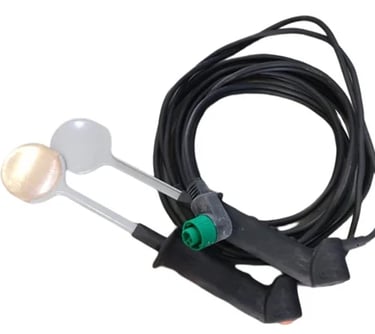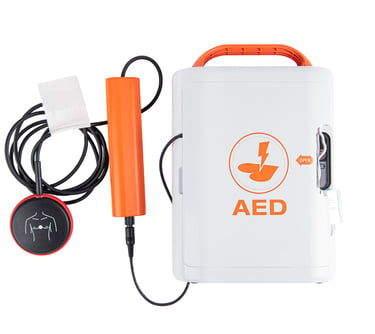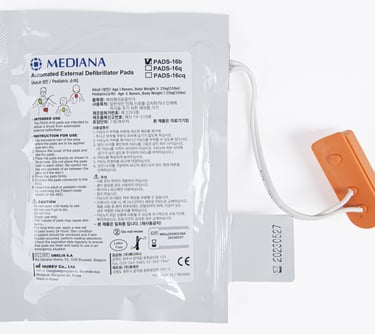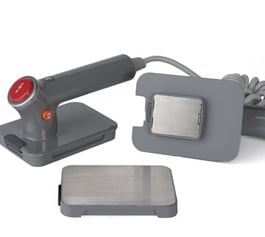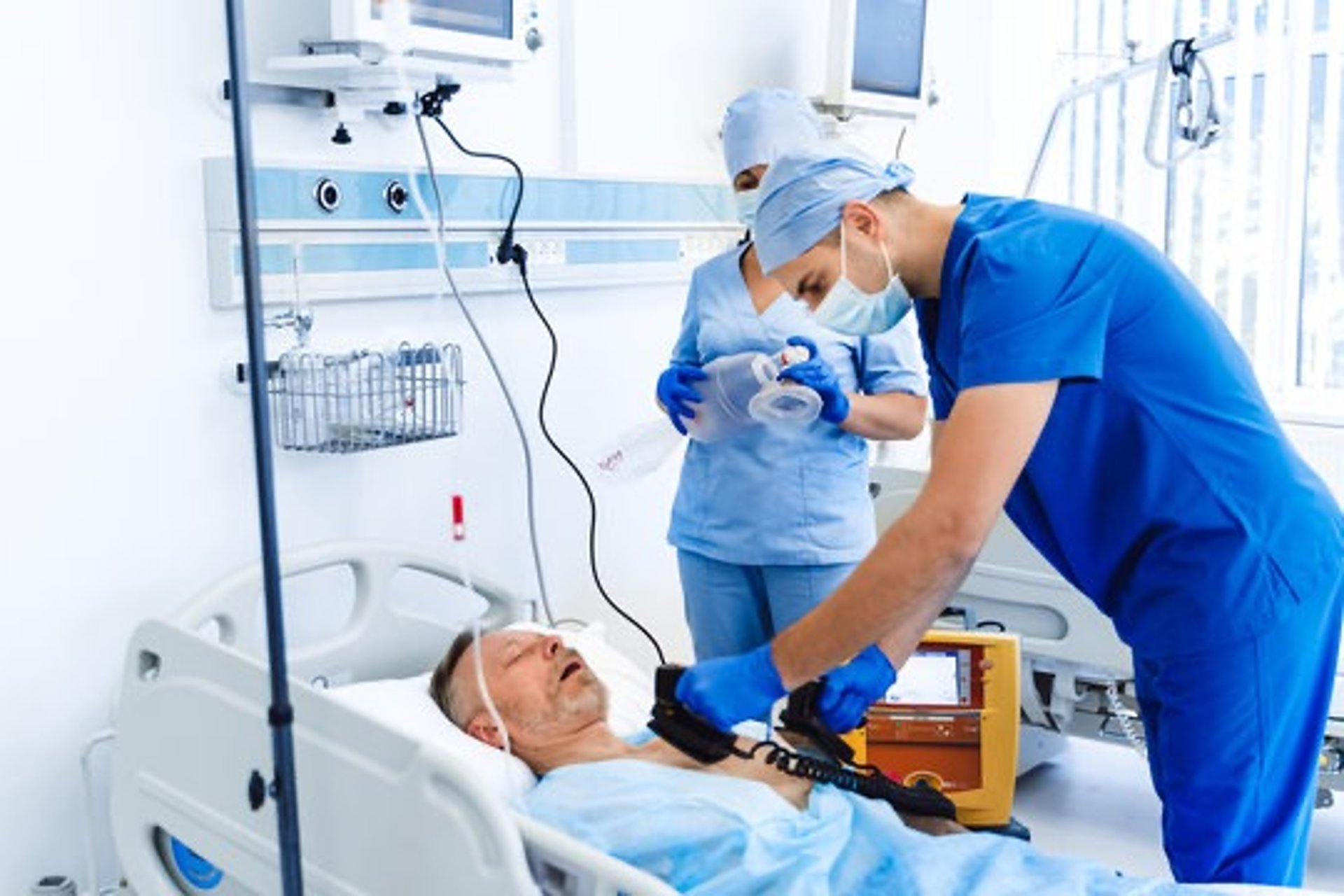
Defibrillators & AEDs
Prevention of Sudden Cardiac Arrest
The D100 Monitor Defibrillator is designed for use by skilled medical technicians, doctors, nurses, or healthcare professionals in outdoor and indoor emergency care environments, including ambulances, under specific environmental conditions. It provides manual and automatic defibrillation and external pacing for adult and pediatric patients.
Additional monitoring functions include ECG (heart rate) and SpO2 (oxygen saturation) for adults, pediatric, and infant patients.
D100
Key Features
Selectable energy levels in manual mode: 10, 15, 20, 30, 40, 50, 75, 100, 125, 150, 175, 200J
7-inch display
Analyzes 3 and 5 lead ECG
Lightweight at 5.5kg (including battery)
Four modes: Manual Defibrillator / AED / External Pacing / Monitor
SpO2 Nellcor™ OxiMax™
Synchronized cardioversion (sync)
Over 5 hours of monitoring on a fully charged battery
Internal data storage: 250 events, 5,000 trends (expandable via SD card)
Simultaneous ECG analysis and high-voltage charging to reduce defibrillation time (AED mode)
Self-test functions: Manual self-test, automatic self-test, button operation check, LCD check, sound check
Printable self-test results
Monitor Defibrillator
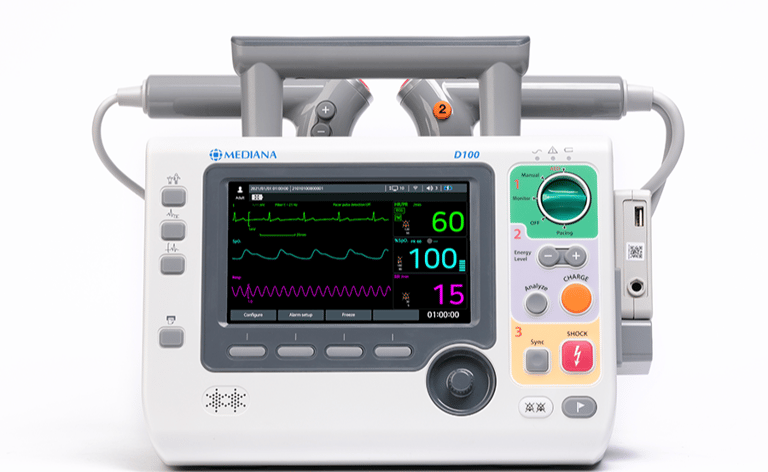

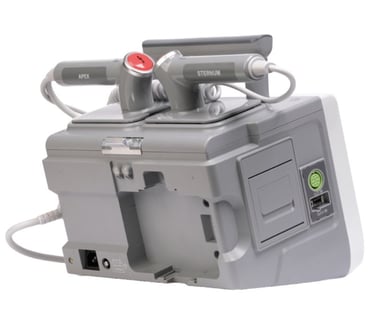

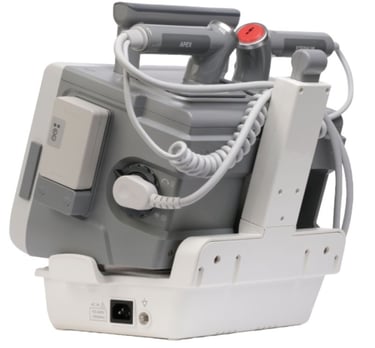


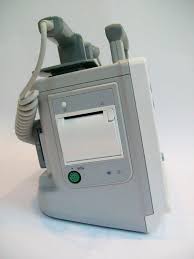



The D700 Monitor Defibrillator is intended for use by experienced medical technicians, doctors, nurses, or other medical professionals in both outdoor and indoor first aid settings, including ambulances, within specific environmental conditions. It offers manual and automatic defibrillation, external pacing, and 12-lead ECG diagnosis for adult and pediatric patients.
Additional monitoring functions include ECG (heart rate), SpO2 (oxygen saturation), respiration, temperature, NIBP (non-invasive blood pressure), IBP (invasive blood pressure), and EtCO2 for adults, pediatric, and infant patients.
D700
Key Features
Selectable shock energy levels in manual mode : 1, 2, 3, 4, 5, 6, 7, 8, 9, 10, 15, 20, 30, 40, 50, 75, 100, 125, 150, 175, 200, 300, 360J
Multi Parameter : 3/5/12 lead ECG, HR, SpO2, NIBP, RR, Temp, IBP, EtCO2
Glasgow Interpretative 12-lead monitoring
SpO2 Nellcor ™ OxiMax ™ / NIBP AND / Capnography RESPRONICS
8.4-inch display
3, 5, 12 lead ECG diagnostics
Four modes : Manual Defibrillator / AED / External Pacing / Monitor
Synchronized cardioversion (sync)
Patient information entry: ID, name, age, gender
Self-test functions : Manual self-test, automatic self-test, button operation check, LCD check, sound check
Printable self-test results
Smart battery feature allows to check remaining power without turning on the device
CPR feedback, Internal Defibrillator (optional)
Monitor Defibrillator
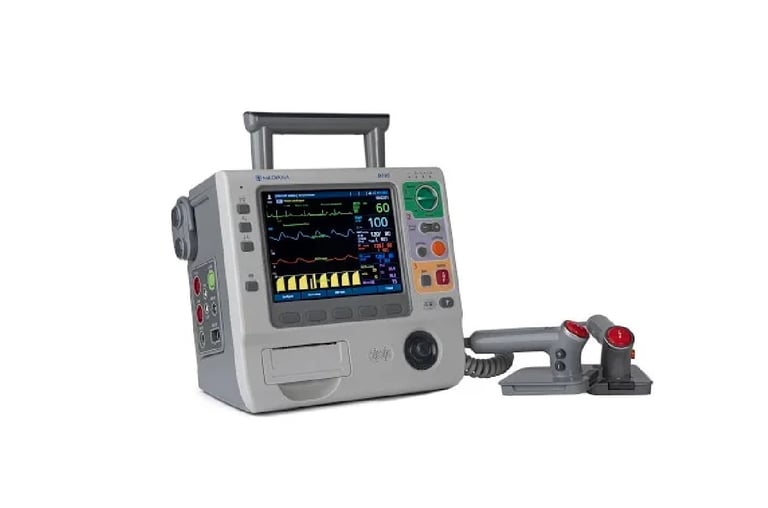

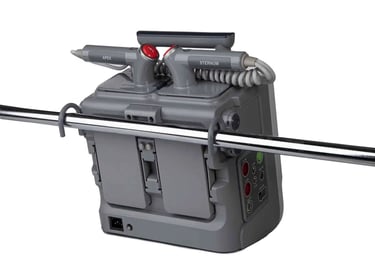

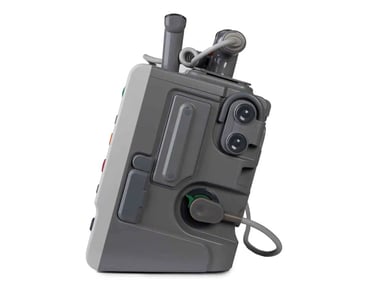


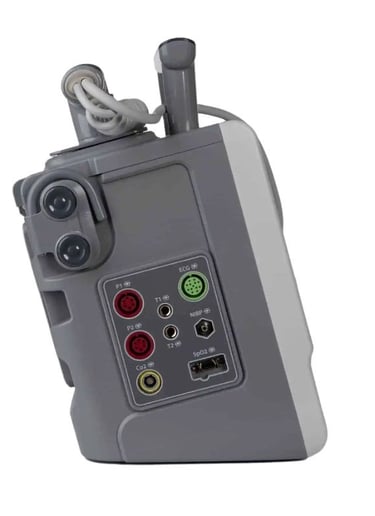



Automatic External Defibrillator(AED)
The Mediana AED is a medical device designed to restore heart function by delivering an electric shock when necessary, analyzing the heart condition of the patient in cases of sudden cardiac arrest, where the heart stops beating and oxygen supply is halted. This AED can be used anytime, anywhere, and by anyone to address emergency cardiac conditions.
The Necessity of AEDs
In the event of cardiac arrest, the heart stops, and oxygen is no longer supplied to the brain and heart. Without prompt treatment, brain damage begins within 4 minutes, and death can occur within 10 minutes. To prevent heart damage and brain death in emergency situations, early CPR (Cardiopulmonary Resuscitation) and the use of an AED (Automatic External Defibrillator) are crucial. Without them, the survival rate decreases by approximately 7-10% for every minute that passes beyond 5 minutes.
AED Response time and survival rate
A16
Key Features
Simultaneous ECG Analysis and High-Voltage Charging(PCT Patent No. 10-19574) and Pre-Connected Pads: Reduces defibrillation time to within 21 seconds, with analysis and charging completed within 10 seconds
ICON LED indicators and sound alerts operate simultaneously, making it easy for anyone to use
LCD Indicator allows for easy management by displaying battery and device status when the power is off
Universal Pads mode selection button allows use for both adults and children
Self-Test functions: regular inspections (daily/weekly/monthly), POST(power-on self test), and BIST(Battery insert self-test) check the main unit, battery, temperature, and pad status, displaying results with O or X indicators
IR Port for easy PC connection and SD Card for data review and software upgrades.
2020 AHA(American Heart Association) Guidelines Compliant
Shock Delivery: 170~195J(±5%) for adults, 44~51J(±5%) for children
Dimensions: 200(W) x 286.5(h) x 90(D) mm
Weight: Approximately 1.95kg (including battery)
IP Level: IP55 protection against liquid and dust intrusion.
Automatic External Defibrillator


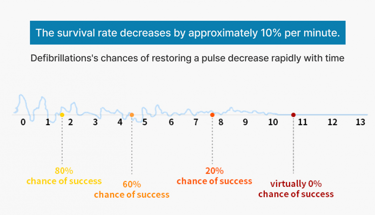
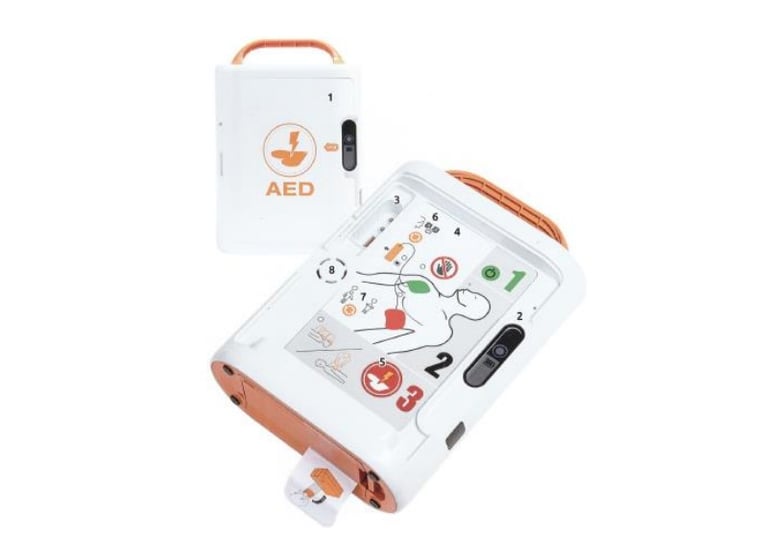

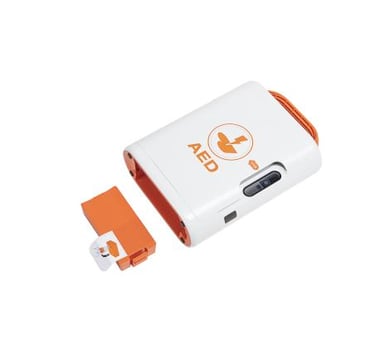

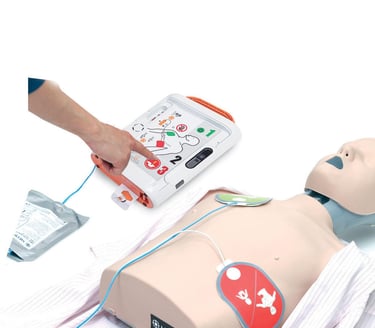

AED Response Time and Survival Rate
As shown in the table, using an AED for cardiac arrest patients can significantly increase the chances of saving a life. The timely use of an AED can provide a critical opportunity to save the lives of cardiac arrest patients. In South Korea, over 30,000 people lose their lives annually due to sudden cardiac arrest, with a resuscitation rate of only about 8.7%, and just 5.4% of patients are discharged with normal brain function. In contrast, other advanced countries have a resuscitation rate of 10-30%.




" We believe in providing timely and effective after-sales support, training on sophisticated equipment, value our relationship with clients."
✉ sales@phoenixmhs.in
📞 +91-85119 07519
Copyrights © Phoenix Meditech Healthcare Solutions 2025. All rights reserved.

CONTACT DETAILS
QUICK
SERVICES & SOLUTIONS
Intra-Operative Solutions
Critical Care Solutions
Neonatal Care Solutions
Diabetology Management
LED Wall Technology





